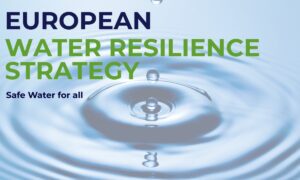The restriction, adopted on 25 September, is estimated to prevent the release of 500.000 tons of microplastics to the environment, according to the commission. This is achieved by adopting a broad definition in the legislation, covering “all synthetic polymer particles below five millimetres that are organic, insoluble and resist degradation”. The restriction will concern products such as materials used on artificial sport surfaces, cosmetics, glitter, plant protection products and toys amongst others. The timeline of the ban depends on the nature of the products, the earliest measures entering into force 20 days from the restriction’s adoption.
The new restrictions are in line with the European Green Deal, as well as the Zero Pollution Action Plan. One of the goals of the latter (of which EuChemS is a stakeholder of) is 30% reduction of microplastics by 2030. The restriction is based on ECHA’s opinion on microplastics.
While the restriction is applied within the framework of REACH, the major revision of the legislation is still not on the horizon. The REACH revision is a controversial topic, as the commission’s proposal on it, despite being urged by the parliament, is not yet finalised, after a number of delays.



